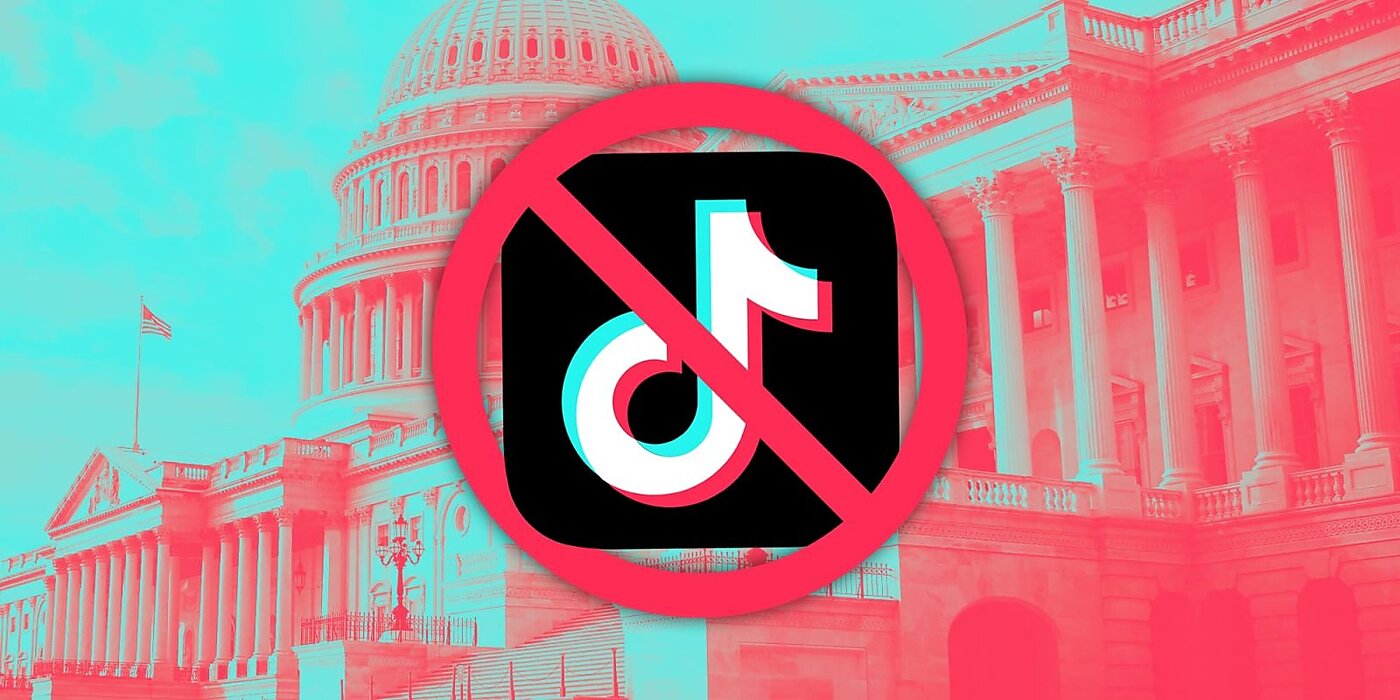Washington – House legislators are rapidly advancing a proposal that could lead to a TikTok ban in the United States. Within just two days, a pivotal House committee both introduced and passed a bill aimed at TikTok, with the full House scheduled to vote on it possibly next week. Moreover, the White House has indicated that President Joe Biden is ready to sign it.
However, the question remains: Is a TikTok ban truly feasible? And how does this current initiative stand out from previous attempts to regulate the video-sharing app, which is utilized by 170 million Americans?
Below is a comprehensive guide to understanding this controversial legislation.
What would the bill do?
Should the bill become law, it would allow TikTok approximately five months to sever ties with its Chinese-affiliated parent company, ByteDance. If the separation does not occur, U.S. app stores would be barred from offering TikTok on their platforms.
The bill’s scope extends beyond TikTok, applying similar constraints to any application purportedly under the control of foreign adversaries like China, Iran, Russia, or North Korea. It also creates a mechanism allowing President Biden—or any successor—to identify apps warranting prohibition under this law.
App stores defying this legislation could face substantial fines, calculated based on the user count of the prohibited app, with penalties amounting to $5,000 per user. For TikTok, this means Apple and Google could face potential fines reaching up to $850 billion each.
The House Energy and Commerce Committee unanimously agreed to move the bill forward on Thursday.

What is TikTok saying?
TikTok has labeled the proposed legislation as an assault on its users’ First Amendment rights. The company initiated a campaign within its app, encouraging users to contact their Washington representatives to protest the bill. This campaign has led to a surge of calls to various congressional offices.
In a statement, TikTok argued, “The government is trying to take away the Constitutional right to free expression from 170 million Americans. This action could harm millions of businesses, deprive artists of their audiences, and ruin the livelihoods of numerous creators nationwide.”
Why are lawmakers cracking down on TikTok?
Critics claim that TikTok represents a national security risk, suggesting that Chinese intelligence laws could compel ByteDance to surrender U.S. TikTok user data to the Chinese government. There’s concern that this data could be exploited to pinpoint intelligence targets or facilitate disinformation and propaganda initiatives.
To date, the U.S. government has not disclosed concrete evidence demonstrating that China has accessed TikTok user data. While cybersecurity professionals acknowledge that this threat is still theoretical, they emphasize its significant potential danger.
Didn’t President Donald Trump try to do this once? What’s he saying now?
Indeed, during his presidency, Donald Trump attempted to compel ByteDance to divest TikTok and aimed to prevent app stores from distributing the platform through a series of executive orders. These initiatives encountered legal obstacles and were ultimately stalled, but Trump was instrumental in spotlighting TikTok, tying it to his wider anti-China policy, which included a trade war and controversial comments that heightened concerns about anti-Asian sentiment.
Interestingly, Trump recently voiced opposition to a TikTok ban. In a Truth Social post, he argued that such a ban would benefit Facebook and its CEO Mark Zuckerberg, whom he labeled “a true Enemy of the People!”
The reasons behind Trump’s sudden change in position on TikTok are unclear. Trump is viewed as the likely Republican candidate for the upcoming presidential election, where he is expected to challenge Biden.
So what makes this time different?
Firstly, the current discussion centers on legislative action by Congress, not executive measures, marking a significant distinction. During Trump’s tenure, there was debate over whether a president possesses the authority to ban a foreign-owned social media app. The current bill aims to establish explicit, novel powers for the president to undertake such actions.
Secondly, Trump’s attempts to ban TikTok previously encountered substantial First Amendment challenges. Proponents of the recent bill assert they have diligently addressed these issues to avoid similar legal obstacles.
Wisconsin Republican Representative Mike Gallagher, a primary cosponsor of the bill, clarifies that the legislation doesn’t outright ban TikTok. Instead, it presents TikTok with an ultimatum: divest or face a ban. Gallagher notes that he and his colleagues have dedicated the past six months to refining the bill, engaging with White House officials and other Washington stakeholders to fortify it against potential legal challenges.
Significantly, President Biden has expressed his support for the bill, stating to reporters at Joint Base Andrews on Friday, “If they pass it, I’ll sign it.”
Can TikTok bill actually pass?
The bill is progressing at an impressive pace in the House, and the swift move to a floor vote indicates that House leaders are confident in garnering sufficient support to pass it.
However, its prospects in the Senate remain uncertain. Should the Senate consider the bill, it would likely be reviewed by the Senate Commerce Committee, according to Gallagher. Presently, there’s no equivalent Senate bill mirroring the House’s proposal. Senator Maria Cantwell of Washington, who leads the Commerce Committee, has issued a statement that, while acknowledging the bill’s detractors’ concerns, doesn’t commit to a specific stance.
Cantwell’s statement to CNN was: “I will be talking to my Senate and House colleagues to try to find a path forward that is constitutional and protects civil liberties.” This reflects a cautious approach to balancing constitutional and civil liberty considerations while addressing the bill’s objectives.
Does the bill violate the First Amendment?
Civil society organizations argue that while the bill’s wording may not explicitly censor TikTok or its users, its implications could effectively result in such an outcome.
Jenna Leventoff, senior policy counsel at the American Civil Liberties Union, stated, “There’s no denying that it would do just that. We strongly urge legislators to vote no on this unconstitutional bill.”
Experts on the First Amendment suggest that the bill’s underlying strategy — presenting TikTok with an ultimatum that may result in a ban — is essentially a maneuver that courts are likely to recognize and scrutinize immediately.
Ken White, a First Amendment litigator with Brown White & Osborn, emphasized that courts consider the practical impact of a law on speech, beyond just its wording. While lawmakers might argue that the bill targets TikTok’s foreign ownership rather than its content, White pointed out that citing “foreign influence” doesn’t automatically resolve First Amendment issues. He expressed skepticism about the effectiveness of Congress’ rationale in this case.
Jameel Jaffer, executive director of the Knight First Amendment Institute at Columbia University, highlighted that a crucial aspect of First Amendment analysis is whether there exists a “less restrictive alternative” to outright banning. He suggested that enacting a comprehensive national privacy law, which would regulate the data handling practices of all companies, not just TikTok, could achieve the intended goals without infringing on First Amendment rights.
Putting aside other considerations, U.S. courts have determined that Americans possess a constitutional right to access foreign propaganda, regardless of the government’s stance on it.
Drawing on this legal precedent, Jameel Jaffer argued that it would be unconstitutional for the government to ban TikTok, even if it were explicitly serving as a channel for the Chinese government.
Jaffer warned, “If you grant the government the authority to limit Americans’ access to what it considers propaganda, you’re essentially allowing the government to restrict access to any information it labels as propaganda.”
